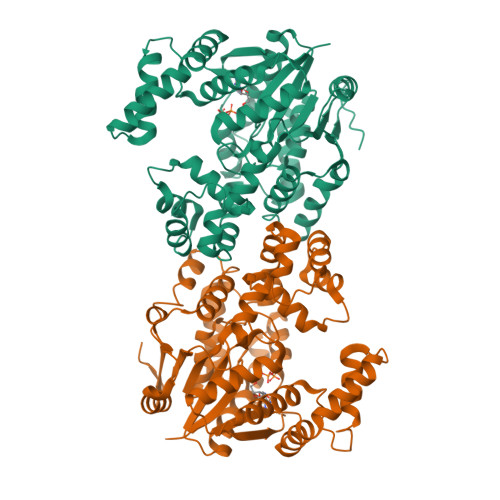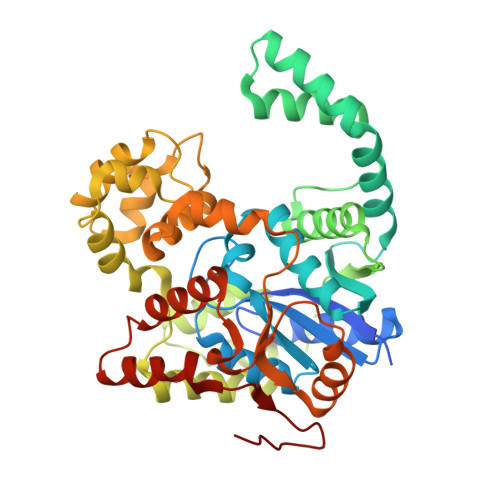Acetate-dependent tRNA acetylation required for decoding fidelity in protein synthesis.
Taniguchi, T., Miyauchi, K., Sakaguchi, Y., Yamashita, S., Soma, A., Tomita, K., Suzuki, T.(2018) Nat Chem Biol 14: 1010-1020
- PubMed: 30150682
- DOI: https://doi.org/10.1038/s41589-018-0119-z
- Primary Citation of Related Structures:
5Y0N, 5Y0O, 5Y0P, 5Y0Q, 5Y0R, 5Y0S, 5Y0T - PubMed Abstract:
Modification of tRNA anticodons plays a critical role in ensuring accurate translation. N 4 -acetylcytidine (ac 4 C) is present at the anticodon first position (position 34) of bacterial elongator tRNA Met . Herein, we identified Bacillus subtilis ylbM (renamed tmcAL) as a novel gene responsible for ac 4 C34 formation. Unlike general acetyltransferases that use acetyl-CoA, TmcAL activates an acetate ion to form acetyladenylate and then catalyzes ac 4 C34 formation through a mechanism similar to tRNA aminoacylation. The crystal structure of TmcAL with an ATP analog reveals the molecular basis of ac 4 C34 formation. The ΔtmcAL strain displayed a cold-sensitive phenotype and a strong genetic interaction with tilS that encodes the enzyme responsible for synthesizing lysidine (L) at position 34 of tRNA Ile to facilitate AUA decoding. Mistranslation of the AUA codon as Met in the ΔtmcAL strain upon tilS repression suggests that ac 4 C34 modification of tRNA Met and L34 modification of tRNA Ile act cooperatively to prevent misdecoding of the AUA codon.
Organizational Affiliation:
Department of Chemistry and Biotechnology, Graduate School of Engineering, University of Tokyo, Bunkyo-ku, Tokyo, Japan.

















